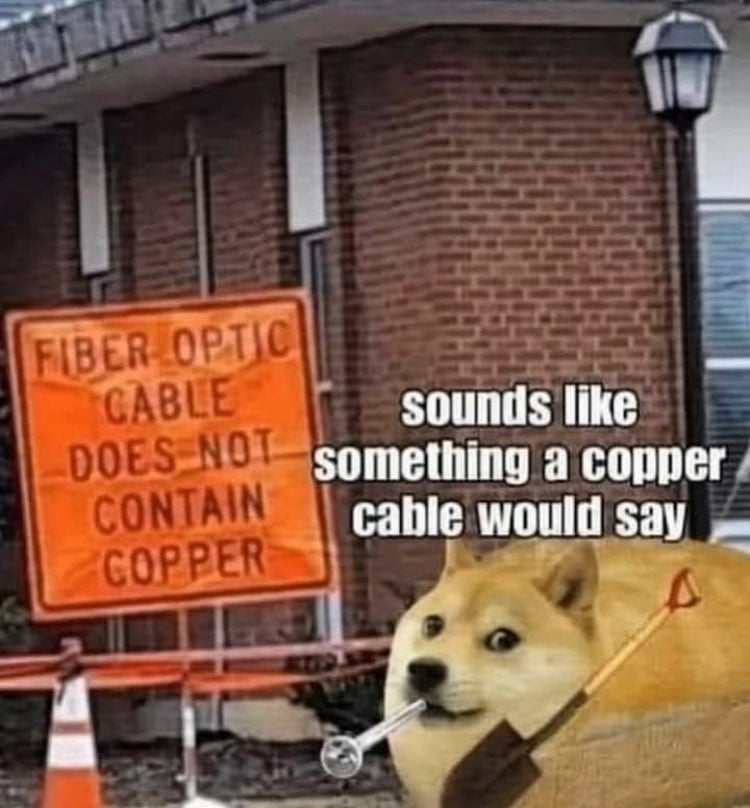this post was submitted on 06 Jan 2025
1238 points (99.4% liked)
Memes
8632 readers
1378 users here now
Post memes here.
A meme is an idea, behavior, or style that spreads by means of imitation from person to person within a culture and often carries symbolic meaning representing a particular phenomenon or theme.
An Internet meme or meme, is a cultural item that is spread via the Internet, often through social media platforms. The name is by the concept of memes proposed by Richard Dawkins in 1972. Internet memes can take various forms, such as images, videos, GIFs, and various other viral sensations.
- Wait at least 2 months before reposting
- No explicitly political content (about political figures, political events, elections and so on), [email protected] can be better place for that
- Use NSFW marking accordingly
Laittakaa meemejä tänne.
- Odota ainakin 2 kuukautta ennen meemin postaamista uudelleen
- Ei selkeän poliittista sisältöä (poliitikoista, poliittisista tapahtumista, vaaleista jne) parempi paikka esim. [email protected]
- Merkitse K18-sisältö tarpeen mukaan
founded 2 years ago
MODERATORS
you are viewing a single comment's thread
view the rest of the comments
view the rest of the comments


They just cut it roughly, strip back the protective layers, then do a very precise and clean cut on the actual fibre and polish the end.
Most of the time it will get spliced into a patch panel (instead of being installed into the patch panel). At which point the cleanly cut fibre is precisely aligned with the fibre from the patch panel, then melted together.
It's very precise. Splicing tools often use extremely high magnification, and very precise actuators to align the 2 fibre ends before they are fused
Cool, always wondered how they fixed our Internet line with it being fiberoptic.
If it's a break in the middle of the fibre, then they will use an epoxy housing for the splice.
I don't know the specifics, but something like this:
Cut/clean up the break, put through an epoxy housing and tighten the cable grips. Strip back the protective layers, clean cut the fibres and splice them all appropriately. Carefully stuff it inside the epoxy housing, fill with epoxy and let it set. Then burry/rig it again.
Those are what the large plastic cylinder things you see on cables are.
Similar housings are used for splicing copper (both data and high voltage) cables that have to withstand elements/burying, just the size (and possibly internals, epoxy type etc) change.
Black plastic cylinder that's larger than the cable, with a couple cables coming out? Probably a splice point